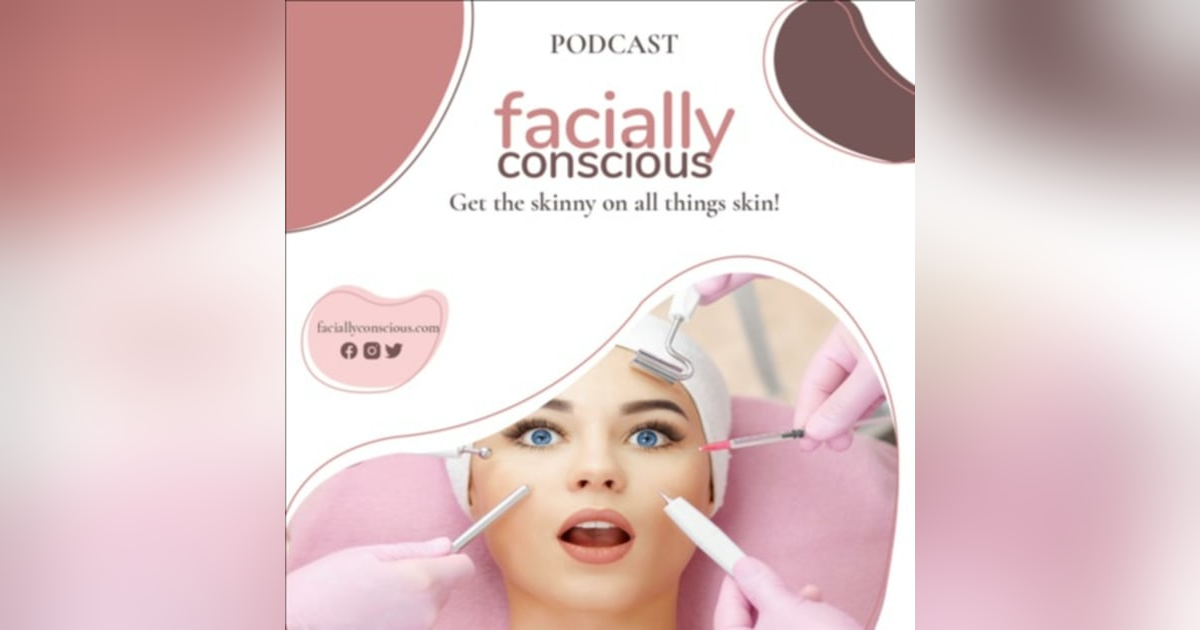July 8, 2023
Should You Avoid Omega-3s When You Have Rosacea?

Q. I was listening to the episode about rosacea where Rebecca said to not take omega-3s because they will dilate the capillary or blood vessels. Is there any research supporting this?
A. Thanks for the question. I can see how this information can be confusing since omegas are well known anti-inflammatories and rosacea is a disorder associated with inflammation so you'd think they'd help. While studies show omega-3s are effective at reducing the dry, gritty symptoms of ocular rosacea (experienced by 50% of those with skin rosacea), the vasodilation-effects of omega-3s and other omegas can trigger capillary distention (aka: telangiectasia, couperose skin and 'spider veins') in those prone to this condition. According to "omega-3 fatty acids increase nitric oxide availability and directly promote relaxation of vascular smooth muscle cells resulting in vasodilation and increased blood flow."1
I first learned about this many years ago when I worked with Dr. Barry Sears, who was the first to suggest fish oil for the diet to reduce inflammation and increase cardiovascular health. He and his brother both had mild telangiectasias on their faces due to rosacea. It got significantly worse as they increased their fish oil intake. We did a small study on those prone to facial telangiectasias and found the same occurred in everyone. We never published the study. However, there is a lot of evidence for omega-3s' ability to relax vascular muscles, which is a condition found in telangiectasias.
Bottomline: omega-3s are indicated for ocular rosacea, producing relief in 3-6 months, but they're not indicated for people with telangiectasias of the face, especially in the high doses required to produce anti-inflammatory and positive cardiovascular effects. Here are some references:
1-Self-Reported Omega-3 Supplement Use Moderates the Association between Age and Exercising Cerebral Blood Flow Velocity in Older Adults, https://www.ncbi.nlm.nih.gov/pmc/articles/PMC7146423/#:~:text=For%20example%2C%20omega%2D3%20fatty,vasodilation%20and%20increased%20blood%20flow.
2-Characterisation of the vasodilation effects of DHA and EPA, n-3 PUFAs (fish oils), in rat aorta and mesenteric resistance arteries; https://www.ncbi.nlm.nih.gov/pmc/articles/PMC5796719/
3-Omega-3s may improve health of blood vessels: A Meta-analysis; https://www.nutraingredients-usa.com/Article/2012/03/29/Omega-3s-may-improve-health-of-blood-vessels-Meta-analysis
4-Omega-3 polyunsaturated fatty acids improve endothelial function in humans at risk for atherosclerosis: A review;
https://www.ncbi.nlm.nih.gov/pmc/articles/PMC5803420/
5-A Randomized Controlled Trial of Omega 3 Fatty Acids in Rosacea Patients with Dry Eye Symptoms; https://pubmed.ncbi.nlm.nih.gov/27050028/
The Ultimate Guide to Hydrating Ingredients: What Really Works for Your Skin
If you've ever applied multiple layers of moisturizer only to still feel tight, flaky, and uncomfortable, you're not alone. The quest for truly hydrated skin can seem like a never-ending search through countless serums, creams, and conflicting advic…
Navigating the Skincare Product Jungle
Expert Advice from the Facially Conscious Podcast episode, All Those Products
Walk into any Sephora, browse Amazon's beauty section, or scroll through Instagram, and you'll quickly see we're overwhelmed with skincare products. Thousands of brands p…








